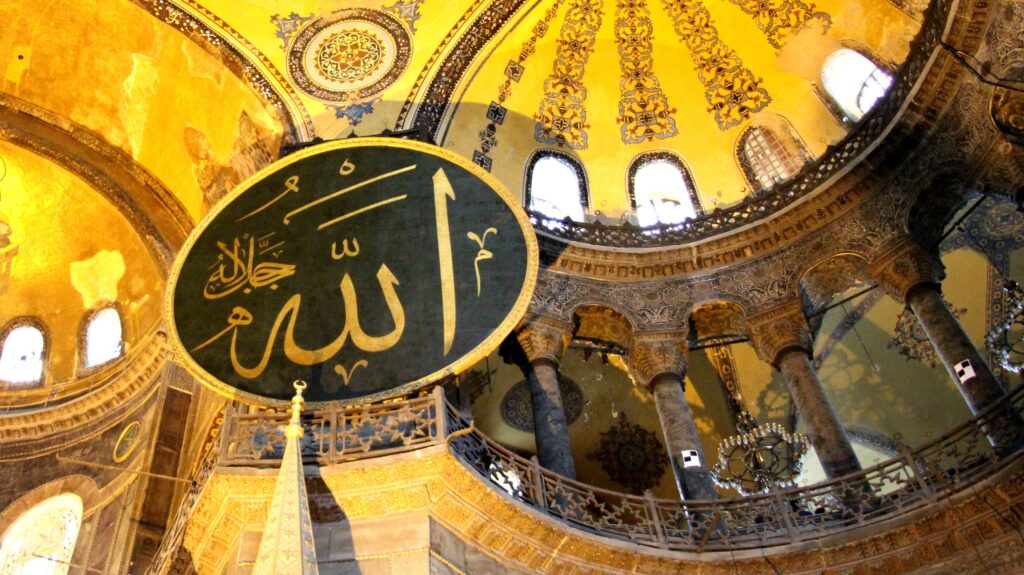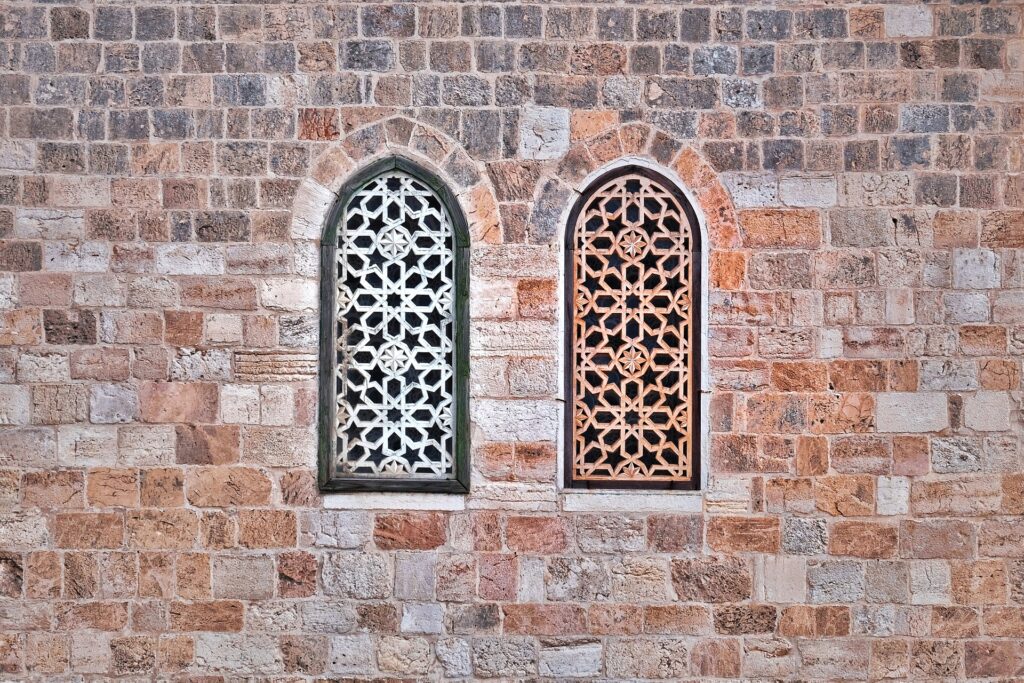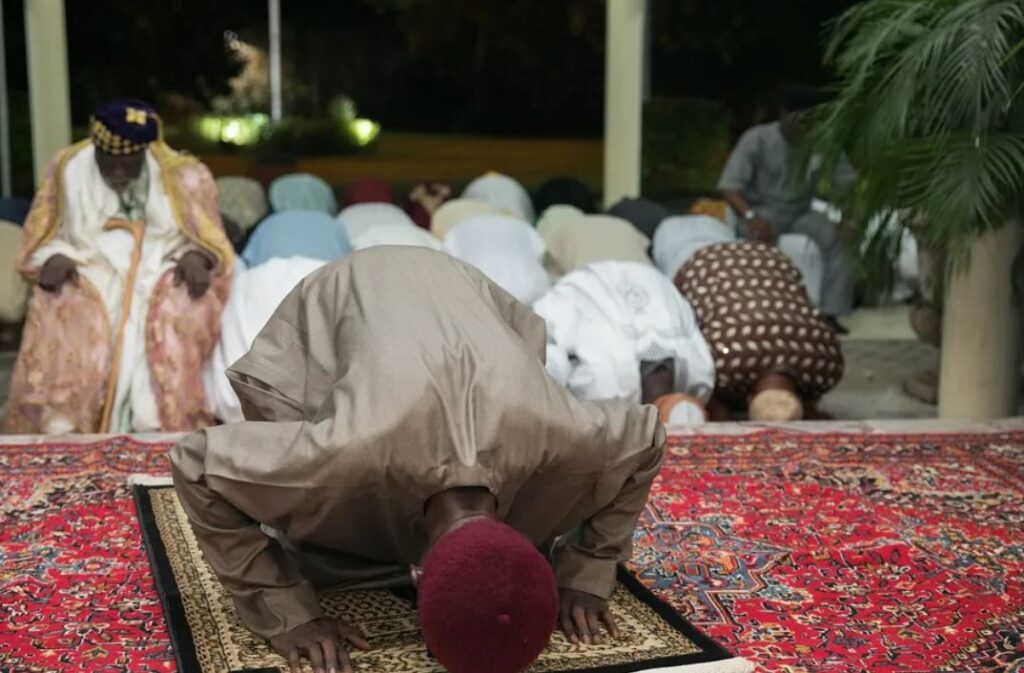Guidance regarding basic Islamic issues that Hazrat Amirul Momineen, Khalifatul Masih Vaa, has given on various occasions in his written correspondence and during MTA programmes is being published officially below for everyone’s benefit.

Problem of the ‘creator of God’
Someone from Canada wrote to Hazrat Amirul Momineen, Khalifatul Masih Vaa […] and said that to demonstrate the existence of God Almighty, we assert that since nothing can create itself, there must be a Creator of the universe. However, he added, this leads to the question of who created God.
Huzoor-e-Anwaraa, in his letter dated 24 December 2021, provided the following answer to this question:
“[…] When we state that everything has been created by some entity or being, it is important to acknowledge that science also recognises that nothing in the universe is self-created. Once we consider this principle, the matter becomes clear. Therefore, when we continue asking about the creator of something and the conversation eventually stops at an entity, that ultimate Creator is God Almighty. Science may refer to that entity as ‘nature’, but according to the teachings of Allah the Exalted and His messengers, we regard that entity as the Being of God Almighty.
“Furthermore, it is essential to acknowledge that God Almighty’s infinite Being transcends human comprehension and knowledge. Our faith regarding this matter is derived from the Holy Quran, which affirms:
قُلۡ ھُوَ اللّٰہُ اَحَدٌ۔ اَللّٰہُ الصَّمَدُ۔ لَمۡ یَلِدۡ وَ لَمۡ یُوۡلَدۡ۔ وَ لَمۡ یَکُنۡ لَّہٗ کُفُوًا اَحَدٌ۔
“‘Say, ‘He is Allah, the One; Allah, the Independent and Besought of all. He begets not, nor is He begotten; And there is none like unto Him.’’ (Surah al-Ikhlas, Ch. 112: V. 2-5)
“The Promised Messiahas has expounded upon this doctrine, stating:
“‘God is One in His being and His attributes and His glory. He has no partner. All are dependent upon Him. He bestows life on every particle. He is the source of grace for everything and is not in need of grace from any. He is neither a son nor a father for He has no equal and no one is like unto Him.’ (Islami Usul Ki Filasfi, Ruhani Khazain, Vol. 10, p. 417)
“Huzooras also elucidated this in the following words:
“‘Your God is One in His Being and in His attributes. No one is eternal and everlasting like Him, nor does anything possess attributes similar to His. Man depends upon a teacher for his knowledge, yet his knowledge remains incomplete, but God needs no teacher, for His knowledge knows no bounds. Man depends upon the air for his hearing, which is limited, but God’s hearing is inherent and unlimited. Man depends upon the light of the sun or other sources of light to see, and his sight is restricted, but God sees by His own light and His sight encompasses everything. In order to create, Man is dependent upon matter and requires time, and his power of creation is confined, but God’s power of creation is not dependent upon matter or time, nor is it in any way limited. This is because all His attributes are unique like Himself.’ (Lecture Lahore, Ruhani Khazain, Vol. 20, pp. 154-155)”
Janazah prayer
Someone from Pakistan wrote to Hazrat Amirul Momineen, Khalifatul Masih Vaa and asked whether the funeral prayer [salat al-janazah] was indeed a type of prayer [salat], or whether it was simply given that name. He said the question arose since the funeral prayer can be performed at any time without having to take the times into consideration during which offering salat would usually be forbidden.
Moreover, he asked whether it was permissible to hold two separate Jumuah prayers in the same mosque. He said, he has observed that in [a certain town’s] mosque, the khuddam who are on duty, deliver a separate sermon and offer a separate Jumuah prayer later on, despite it being prohibited in the book Fiqh-e-Ahmadiyya.
Huzoor-e-Anwaraa, in his letter dated 7 January 2022, provided the following guidance in this regard:
“The funeral prayer is indeed a type of salat, but it does not include bowing [ruku‘] or prostrating [sajdah] because the deceased’s body is present in front of those offering the prayer. This is to avoid any chance of shirk [associating partners with God]. In Tafsir-e-Kabir, Hazrat Musleh-e-Maudra explained various types of prayers, including the funeral prayer and stated:
“‘In addition to all the other prayers, Salat al-Janazah is another necessary prayer that is considered a collective obligation [fard al-kifayah] in Islam. […] It differs from other obligatory prayers in that it is performed standing up without any ruku‘ or sajdah. All of its parts are performed while standing up. […] The prayer has four parts and is initiated by the imam, who stands facing the qiblah, placing his right hand over his left hand on his chest after loudly reciting the takbir. There is no iqamah pronounced before this prayer.’ (Tafsir-e-Kabir, Vol. 1, p. 115)
“There are no prohibited times for offering funeral prayers. However, there is a difference of opinion among Islamic jurists [fuqaha] regarding this matter. There is no prohibition for offering funeral prayers, as there is for offering voluntary prayers [nawafil] after Fajr and Asr prayers, which is prohibited. However, during the three times, i.e., when the sun is rising, at its zenith, or setting, according to the Hanafi, Maliki, and Hanbali jurists, it is preferable not to offer funeral prayers without a valid excuse or necessity. On the other hand, according to the Shafi‘i jurists, funeral prayers can be offered at any time.”
Two Jumuah prayers in one mosque

“As far as the question of offering two separate Jumuah prayers in one mosque [by two groups of people] under compelling circumstances is concerned, remember that just as the repeating of other congregational prayers is confirmed by ahadith (Sunan at-Tirmidhi, Kitab as-salah, Bab ma ja’a fil l-jama‘ati fi masjidin qad sulliya fihi marrah) and also by the permission granted by the Promised Messiahas for it on account of some necessity (Badr, Qadian, Vol. 6, No. 1, 10 January 1907, p. 18), Friday prayers may also be offered twice if necessary, and there is no objection to this.
“However, it is necessary to take precautions to ensure that the Friday prayer is not offered again in the same spot in the mosque where it was already performed. Instead, the on-duty khuddam should deliver their separate sermon and offer their Friday prayer in a different spot. An example of this can be found during the blessed era of Hazrat Khalifatul Masih Ira; Al Fazl (Qadian) recorded this in an article titled ‘Madinatul Masih’ as follows:
“‘On Fridays, men and women used to go to Aqsa Mosque. This also provided an opportunity for some mischievous people to cause trouble, which resulted in financial loss for a couple of individuals. Therefore, the following recommendation of Dr Khalifa Rashiduddin Sahib[ra] was accepted by Hazrat Maulvi Sahib (Khalifatul Masih Ira): He suggested that to achieve peace of mind, a group of believers should hold a vigil from noon until the Friday prayer has been offered, and then these sincere Ahmadis should observe their separate Friday prayer at Mubarak Mosque. Therefore, on that Friday, Babu Wazir Muhammad Sahib, a sincere and enthusiastic Ahmadi from Lahore, along with some twenty to thirty Ahmadi boys, some Afghan Ahmadis and Munshi Akbar Shah Khan Sahib, held the vigil. Then, Khan Sahib led the separate Jumuah prayer, as was instructed by Amir(-ul-Momineen, Hazrat Khalifatul Masih Ira), after the people had returned from the Aqsa Mosque.’ (Al Fazl, Qadian, Vol. 1, No. 4, 9 July 1913, p. 1)
“Thus, while it is possible to have another Friday prayer after one has already been offered, it should be noted that such a situation should only arise out of necessity or compulsion, as confirmed by the above reference. Additionally, obtaining permission from the local administration is also a necessary step for this. Furthermore, [according to this particular reference], it is necessary not to offer the Friday prayer again in the same mosque where it has previously been offered, but rather to find a different location. If another location is not feasible, then the second Friday prayer may be held in the courtyard of the same mosque, behind its prayer niche [mihrab], or in a corner of that mosque.”
Reciting the basmalah during congregational salat

Someone from London wrote to Hazrat Amirul Momineen, Khalifatul Masih Vaa and asked that, since the basmalah is part of Surah al-Fatihah, why the imam starts the loud recitation of Surah al-Fatihah from ‘al-hamdu lillahi’ instead of starting it with the basmalah?
Huzoor-e-Anwaraa, in his letter dated 7 January 2022, provided the following answer to this question:
“The ahadith make it abundantly clear that the basmalah, i.e., the phrase ‘بسم اللّٰہ الرّحمٰن الرّحیم’, is a verse and an integral part of every surah of the Holy Quran […]. Hazrat Musleh-e-Maudra provided a detailed explanation of this concept in his commentary [tafsir] of Surah al-Fatihah.
“In each rak‘ah of the prayer, we recite the basmalah before reciting Surah al-Fatihah or any other [complete] surah [apart from Surah At-Tawbah]. However, it should not be recited aloud, but rather in a quiet voice, as it is established from authentic Hadith sources that the Holy Prophetsa used to recite the basmalah quietly before reciting Surah al-Fatihah and other surahs during salat.
“Hence, it is narrated by Hazrat Anasra that, ‘Whenever the Holy Prophetsa, Hazrat Abu Bakrra and Hazrat Umarra would start the [loud recitation in] salat, they would begin with the phrase ‘al-hamdu lillahi rabbi l-‘alamin’’. (Sahih al-Bukhari, Kitab as-azan, Bab ma yaqulu ba‘da t-takbir)
“In another account, Hazrat Anasra narrated that, ‘I prayed behind the Holy Prophetsa, Hazrat Abu Bakrra, Hazrat Umarra, and Hazrat Usmanra. I never heard any of them recite the basmalah aloud (before reciting a surah during salat).’ (Sunan an-Nasa’i, Kitab al-iftitah, Bab tarki l-jahri bi bisimillah)
“The Promised Messiahas also followed the same practice of not reciting the basmalah aloud. This practice has been continued by his khulafa, who do not recite the basmalah aloud either. The unity and uniformity of the Jamaat demand that the imams of congregational prayer adopt the same practice as demonstrated by the Holy Prophetsa, the Promised Messiahas, and their khulafa.
“However, it is true that if someone still recites the basmalah aloud during salat, we do not consider it invalid, as there are some ahadith that mention that, on some occasions, the Holy Prophetsa recited it aloud too. Hence, Hazrat Khalifatul Masih Ira stated:
“‘It is permissible to recite the basmalah in both ways; aloud or quietly. Our Hazrat Maulvi Abdul Karim Sahib (may God forgive him and have mercy on his soul) was of an energetic nature. He used to recite the basmalah aloud. Hazrat Mirza Sahib [i.e., the Promised Messiahas] did not use to recite it aloud. I also recite it quietly. Among the Companionsra, there are two schools of thought in this regard. I advise you not to quarrel over how anyone recites it. The same is true of amin; it too is permissible in both ways. In some places, the Jews and Christians used to dislike the Muslims’ saying amin. So, the Companionsra used to say it very loudly. I enjoy both methods. One can recite it aloud or quietly.’ (Badr, No. 32, Vol. 11, 23 May 1912, p. 3)
“Hazrat Maulvi Abdul Karim Sahibra of Sialkot embraced Ahmadiyyat later in life. Before joining the Ahmadiyya Movement, he used to recite the basmalah aloud, as is also confirmed by the practice of the Holy Prophetsa. Therefore, the Promised Messiahas did not prohibit him from continuing this practice. However, it is also established through the narrations of many senior Companionsra, such as Hazrat Mian Abdullah Sahibra of Sanaur, Hazrat Mufti Muhammad Sadiq Sahibra, Hazrat Qazi Muhammad Yusuf Sahibra of Peshawar, and Hazrat Sahibzada Mirza Bashir Ahmad Sahibra, that the Promised Messiah’sas own practice was in line with the most frequent sunnah of his lord and master, the Holy Prophet Muhammadsa, the chosen one.
“Thus, in order to maintain unity and uniformity in this matter, we should adopt the same approach that was most frequently chosen by the Holy Prophetsa and which was also followed by:
- his rightly-guided caliphs, who assumed the throne of the Islamic caliphate during the first establishment of Islam,
- the Promised Messiahas, who was sent as a spiritual heir and the ardent devotee of the Holy Prophetsa to bring about a revival of Faith during the Islamic Renaissance,
- and by every manifestation, i.e., Khalifa of the true Islamic caliphate that was established through the Promised Messiahas.
“On one occasion, someone said to Hazrat Musleh-e-Maudra that there were other books, besides Sahih al-Bukhari and Sahih Muslim, that did mention the Holy Prophetsa reciting the basmalah aloud. The person asked if there is no harm in reciting the basmalah loudly, should he continue to do so or abandon it? In order to preserve the aforementioned unity and uniformity, Hazrat Musleh-e-Maudra replied:
“‘According to Bukhari and Muslim, the Holy Prophetsa did not recite the basmalah aloud. Do other books have greater authority than Sahih al-Bukhari and Sahih Muslim?’ (Farmudat Musleh-e-Maud Darbarah Fiqhi Masa’il, pp. 56-57)”
(Compiled by Zaheer Ahmad Khan, Head of Records Department, Private Secretariat, London. Translated by Al Hakam.)

